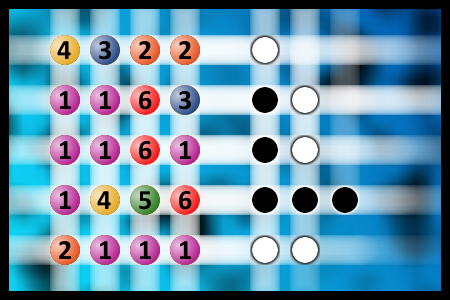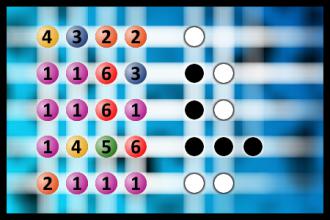Which is a winning combination of digits?
The computer chose a secret code (sequence of 4 digits from 1 to 6). Your goal is to find that code. Black circles indicate the number of hits on the right spot. White circles indicate the number of hits on the wrong spot.Correct answers: 63
The first user who solved this task is Djordje Timotijevic.
#brainteasers #mastermind

$1 bill
A man offers a girl in his office $1,000 to sleep with him. “I’ll put the money on the floor, you bend down, and I’ll be done by the time you pick it up,” he explains.
The girl consults her boyfriend who advises her to go ahead but to pick up the money really fast. Having not heard anything for an hour, the boyfriend calls her back.
“I can hardly walk, let alone make a phone call,” the girl says.
“What happened?” her boyfriend asks anxiously.
“He used $1 bills.”

